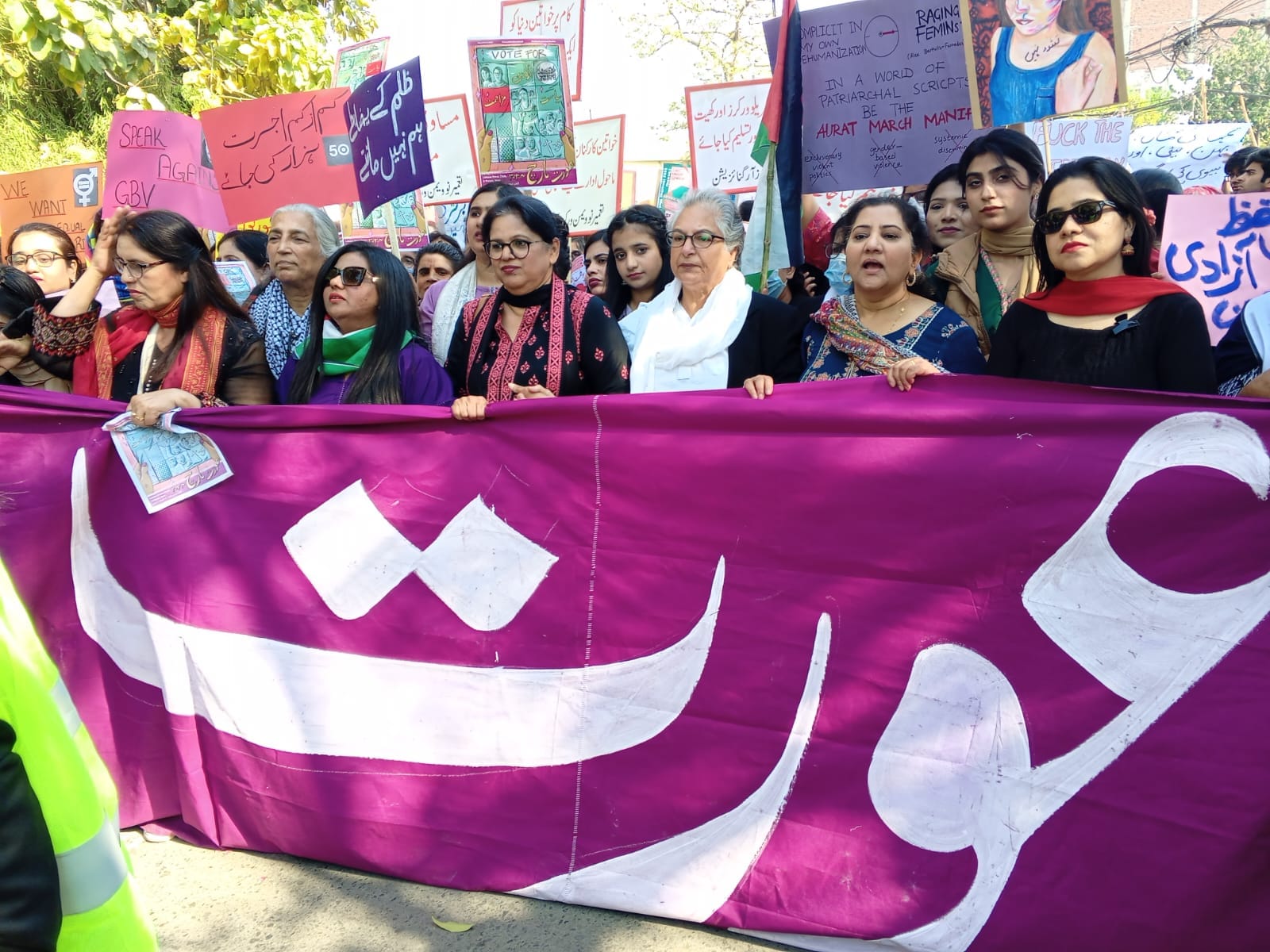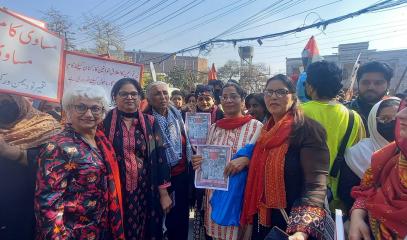Forced conversions, child brides and deaths in Gaza: March 8 for women in Pakistan
From Lahore to Faisalabad to the Hindus in Sindh, many took to the streets to demand rights and freedom. In Lahore along the route kites with the names of the innocent victims of the conflict in the Strip. Shazia George, Awam director: increase allocations for education from 2% to 4% of GDP and create a favourable environment to cover gender disparities in education.
Lahore (AsiaNews) - Chanting slogans and displaying signs calling for "protection of rights" and equal opportunities, in many cities of Pakistan women took to the streets yesterday 8 March, on the International Day dedicated to the pink universe, asking for greater protection from the government .
Inspired by the slogan "Invest in women: accelerate progress" and the campaign motto "Inspire inclusion", the demonstrators wanted to affirm once again the importance of "diversity" and "assumption of responsibility" in all sectors of society.
In Lahore the women started their demonstration from the Lahore Press Club, ending it near the Punjab Parliament. Participants sang songs of peace and recited poems to end discrimination and violence against women.
The thousands of participants called for women's rights and paid tribute to the victims of the war in Gaza between Israel and Hamas, calling for an immediate end to the conflict. Along the way, organizers displayed white kites for each day of war, bearing the names of a boy or girl who lost their lives due to military escalation.
In Faisalabad, human rights defenders organized an event at the Vision Hall to relaunch their commitment to promoting "inclusive societies". The protesters highlighted the difficulties of domestic workers, which can only be addressed with solutions, through greater powers and responsibilities for women, greater investments in their education, strengthening equality and participation in social life.
Naveed Walter, president of Human Rights Focus Pakistan (HRFP), recalled how domestic workers, especially women, are the easiest targets of physical, sexual, psychological and verbal abuse in the country.
One situation of particular fragility and vulnerability is that of underage domestic workers, as emerged in one of the latest news events involving 14-year-old Rizwana, employed in the house of a civil judge in Islamabad, victim of domestic violence.
The activist continued by recalling how a recent report by the International Labor Organization (ILO) shows that one in four families employs a child in domestic work, especially girls between 10 and 14 years old.
Finally, he stated that collective efforts can change society and create a more inclusive world that leaves no one behind, including domestic workers, achieving the 17 sustainable development goals set out in the 2030 Agenda.
When asked by AsiaNews, Shazia George, Awam director, underlined that 11.4 million girls, in the age group between 10 and 14, "have never attended school and the highest percentage is that of women".
The activist also highlights the lack of school facilities, customary practices, underage marriages, sexual harassment and the inadequate number of schools for girls/women which end up increasing the dropout rate among girls. Hence the invitation to the government to increase allocations for education from 2% to 4% of GDP and to create a favorable environment to cover gender disparities in the field of education; in particular it is necessary to intervene on the practice of child marriage by setting the legal age of marriage at 18 for both sexes.
“The local context – she states – prevents women from participating in political life, as demonstrated by voter registration and female turnout in the 2024 general elections, which highlight the strong patriarchal influence”.
“The increasing trend of forced and child marriages, the growing number of violence against women and honor-related crimes - he concludes - require concerted efforts by governmental and non-governmental actors to change the context”.
In the province of Sindh, the Hindu community also organized a demonstration urging the government to stop forced marriages and the conversion of members of minorities, in particular minor Hindu girls.
Activist Chaman Lal said: “We must all raise our voices together and speak in unison. We ask the Pakistani government to demonstrate its commitment to protecting citizens, especially the most vulnerable religious minorities, because the time for inaction is over and we need to take strong action against those responsible such as Mian Mithu and Pir Ayub jan Sarhandi, Muslim leaders who convert Hindu minor girls by force."









.png)










